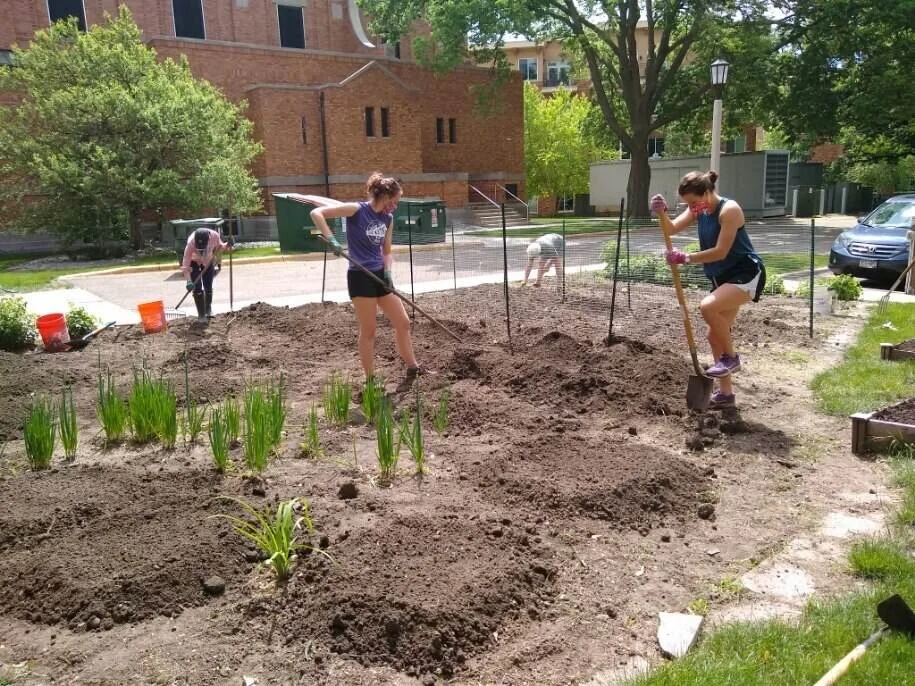On Stage goes online
Local theater program moves to online format amidst COVID-19 pandemic
With classes moving into an online format since the beginning of the COVID-19 pandemic, some professors have found it difficult to engage with students. The lack of face-to-face contact has made it hard for students to understand the material, and professors have had to pioneer new tactics to help students feel like they are a part of the class.
This struggle is not faced by professors alone. Professions such as the performing arts have had to rethink how they do their work, with theaters closing and in-person gatherings reduced to a minimum.
On Stage, a theater outreach program based in the Twin Cities, is more than aware of this. In fact, the program at its inception has focused on finding new and dynamic ways to engage youth in theater. Pre-pandemic, actors in the program would go to classrooms and community settings around the Twin Cities. Attending classes ranging from Sociology to Women and Gender’s Studies, the actors would read the scenes from a current local production, discuss the relevance of the play to current events, and identify personal values between the students and the play. On Stage hoped to lay the groundwork for encouraging attendance to these plays in the future.
Lucas Erikson, the founder of On Stage, mentioned that the program has been successful in increasing theater attendance. Since the program began, On Stage has partnered with ten theater companies in the Twin Cities, covering fifteen plays. Of these fifteen plays, over 4500 students had been exposed to new theater and new venues. Over 1250 (29%) of the students paid to see the show that was discussed in their class. By promoting smaller theaters that lack the resources for their own outreach, On Stage helps to promote a variety of social, cultural, and political issues expressed in performance art.
With the COVID-19 pandemic, On Stage has moved their outreach to an online format. Their new OnStage/OnLine program is described by Erikson as “a series of discussions based on plays that are ‘in the works’ to be produced and performed in the Twin Cities in the future, designed to: stimulate an interest in live theater, examine the cultural context of a play, and, of course, to have fun!”
In their run of fifteen in-class discussions, On Stage visited Dr. Margret McCue-Enser’s “Gender and Rhetoric” class to discuss the play, “Nina Simone: Four Women.” The play, written by the local playwright Christina Ham, focuses on the bombing of a 16th Street Baptist Church by white supremacists in 1963, in which four young Black girls were killed. Activist Nina Simone’s song, “Four Women,” inspired the title, as during the Civil Rights era, women were not allowed to march with men or speak at the ceremony except to sing for the crowd. The play focuses on how music was a powerful form of resistance during the Civil Rights Movement.
During the in-class discussion at St. Kate’s, On Stage brought the fire and passion for this play in an online format. Four local actors were present in the discussion, and instead of simply discussing the play, they made it about the class. With activities such as getting students to flood the chat with their social causes that kept them awake at night, letting the students physically move in their spaces to engage them in activities, and empowering students to put themselves in the characters’ place by allowing them to read the script, the actors let the students themselves make the connections about why the play is important.
Teaching artists Regina Williams, Sun Mee Chomet and Maria Asp facilitating a discussion with St. Catherine University students in Margret McCue-Enser’s class: COMM 3070: Gender and Rhetoric.
Something that I found to be particularly engaging was how the actors were able to seamlessly weave in the themes of the play with the class activities. For example, the actors would ask the students: “What is one thing you love about yourself?” After the students answered, the actors transitioned into a scene about learning self-love as a Black person. One of the actors, who plays Simone in the play, noted that had the script not mentioned Blackness, no one would know that it was about a Black person. She then went on to point out that everyone has moments where they feel harmed and exposed, and implored them to think about what they would need in that moment to feel strong. I thought that this was a particularly effective way to get students to empathize with the central themes of the play: thinking about the struggles of the protagonist in the lens of their own, similar struggles.
Another central theme in the discussion was about activism and current events. As the play focuses on the activism of Black women in the 60’s, the discussion focused on how students can apply their bravery to their everyday lives. They mentioned how Simone, the protagonist, didn’t start her life thinking she’d be an activist: the church bombing made her one. Similarly, the actors asked the students to think about those that they knew that had suffered an injustice, and to think about the turning point that would empower the students to put their life on the line for a cause.
“That’s passion,” said Maria Asp, one of the teaching artists.
Overall, the discussion on “Nina Simone: Four Women” was incredibly powerful. Not only is it a timeless play dedicated to empowering activism in all its forms, but it is a play that evokes thought about what activism means to each of us. If you are interested in seeing “Nina Simone: Four Women”, Pillsbury House Theater hopes to present the play in the fall.







